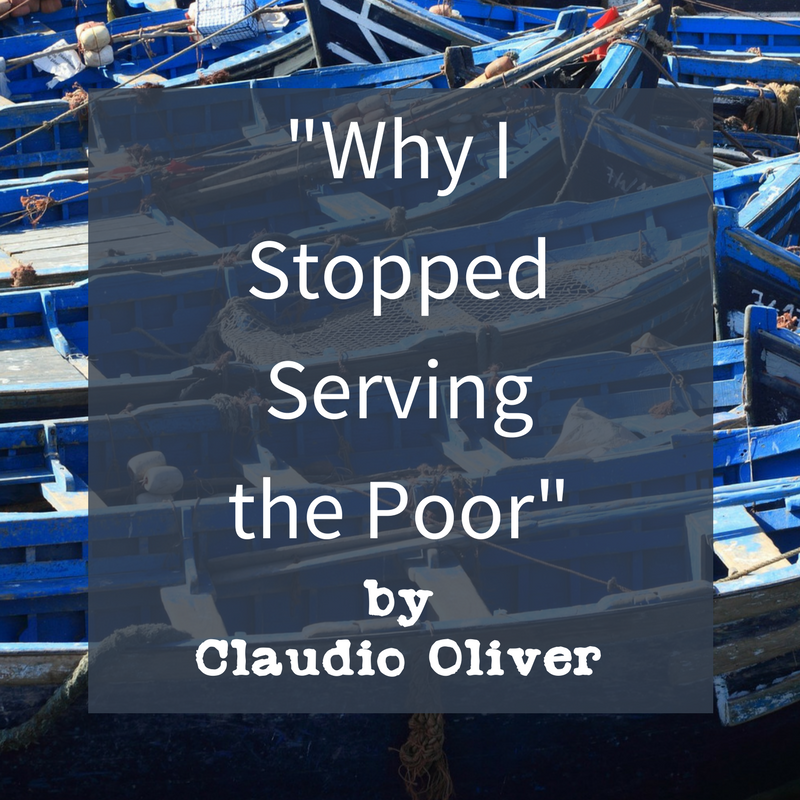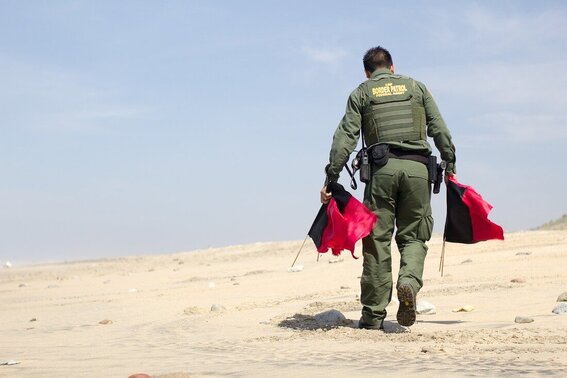 History is a wise ancestor who leads us, if we let her. District Judge Gee postponed the order to release migrant children held in detention facilities by ten days with a release date of July 27. DHS, this is your opportunity to intentionally keep families together. To make wrongs right. To carve a new path forward. From 1619 until 1865 we forcibly separated families in slavery. Children were legally allowed to be sold or traded without the permission of their parents. This was America. From 1860 until 1973 we forcibly separated Native American children from their families through boarding schools. Agents were paid a bounty for “rounding up kids to ship to the government boarding schools. Later… parents had to sign papers to let their children go ‘legally.’ Parents who refused could go to jail.” Binary choice made way for forced assimilation. This was America. In the 1930s during “Mexican Repatriation” children were left behind while parents were detained and deported. This was America. A decade later, 120,000 Japanese Americans were incarcerated in internment camps. In some cases, family members were separated and put into different camps. It was an executive order that legalized this version of America. In 2018, over 2,700 children were forcibly separated by you under the zero-tolerance policy. District Court Judge Sabraw issued an injunction against the separations in June 2018. International agencies called you out on human rights violations. And the American people were outraged. The America we wanted was not the one we saw. Two years ago, this was America. In each case, the dehumanization of human beings led to forced separation of families in the name of national security and capital gain. So I ask you, DHS, because you hold the power. Will you set America on a better path than her past has projected for her? Fulfill Judge Gee’s order by allowing families to leave detention centers together. Five-year-old Julia, my former foster daughter was separated first in Mexico from her biological mother. Smugglers held her mother hostage and forced her into prostitution. Julia was separated from her stepdad because of zero-tolerance. The power you wielded led to life-long trauma for their family. You have security forces in positions where social workers should be. Securing our safety as a nation involves upholding human rights, protecting our holistic wellbeing, and allowing those who seek safety to be first and foremost treated as human beings “endowed by their Creator with certain unalienable rights.” When, by July 27, you release these children to sponsorship families through the Office of Refugee Resettlement — which Julia went through — what then? Over half of low-income families in America are economically struggling in the U.S. right now due to COVID-19, and sponsorship families do not get a stipend like foster families do. Imagine taking a child into your home. What stresses would your family go through? Release families together. Let this be our America. Julia ended up in foster care because she was released to a home that was already struggling financially. As a foster parent who parented two American girls prior to Julia, family separation is achingly difficult, even when biological parents have abused or neglected their children. Foster care exists to reunite families as soon as possible with safety precautions around the children: good parenting standards in a safe and appropriate home. Why aren’t immigrant families afforded the same rights? Unless the detained immigrant parents are abusive, children should be released with their parents. Beyond the unnecessary trauma we are inflicting on these families, we know that alternatives to detention cost far less and community-based programming is far more humane than detention. If we separate families in the name of national protection at the cost of our souls, we are still the America we’ve always been. If we separate families for economic gain, how are we any different than the smugglers who do the same? Every time we separate families, we stunt our moral growth continuing our already-too-long legacy of dehumanization. We subject so many to the unnecessary but all-too-familiar trauma of family separation for the sake of an America we don’t want. Let us be an America known for reuniting families, not one that finds more subtle ways to tear them apart.
3 Comments
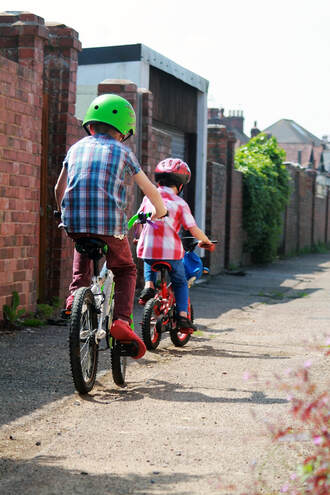 The first time I met “Daniel” was at his 8th birthday party. The clinic had a birthday party for him and bought him a special bike. He had never ridden a bike before, he was born with a disability. When the doctors put Daniel in his mother’s arms, they told her that the only chance he had to have another birthday was to leave their home for specialized care that his country could not offer him. What would you do for your child? Nearly 35 million U.S. children have experienced one or more types of trauma. One of the most common causes of childhood trauma is separation from a parent or caregiver. Children as young as 5 months old can remember traumatic events. This can lead to social, emotional, and academic difficulties. Why would we as a nation ever want to contribute to that? Daniel continues to have surgeries, therapy, and complications. He stopped playing at recess because he was afraid he would fall. Imagine being 8 and knowing how much a CT scan costs at the Emergency Department. Last year, Daniel started having seizures. Would you walk across the world if it meant you could keep your child safe? Would you accept the help of friends to find someone to perform brain surgery on your baby? I hope so. Keep families together. Keep children remembering happy birthdays wherever they are. Families will continue to walk across nations to find a better life for their children, we are only responsible for how we treat them while they are in our care. Amy Norbury, MSN,DNP Nurse Practitioner from North Carolina Dear white Christians,
I know that some of you might get angry that I am even distinguishing us as white, but it's necessary. You might ask why, and I'll answer, but not right now. Right now I want to remind us of the Lord's Prayer. Right now I want to say that if you are looking for a place to start untangling all that you may or may not understand that is happening in the world, start there, with the Lord's Prayer. OUR FATHER Yes, He is all of our Father. Notice Jesus does not say My Father. He says Our. Our is a collective possessive adjective here. We all get to be a part. Not just the sinless One; no, we are family. YOUR KINGDOM COME & YOUR WILL BE DONE This is not about our own kingdoms. This is not about my own family, my own house, my own financial wealth. This is about God's Kingdom Come. And His kingdom is a counter-cultural kingdom, it's an upside down kingdom, it's a shalom-embodied community where everyone is seen as neighbor and everyone flourishes in his/her own way. This is a kingdom where no one is higher on the "worth" scale than anyone else. Everyone is worthy. Everyone has value not because of his/her actions, but because he/she is a HUMAN BEING MADE IN THE IMAGE OF GOD. GIVE US THIS DAY OUR DAILY BREAD This is a violent confrontation with the idol of scarcity (or the scarcity mindset) that says there's not enough. There's never enough. How does this play out in what's happening right now? It plays out in privilege. Our privilege mixed with our American Dream mentality tells us (just as Egypt tried to ingrain in the Israelite psyche) that your worth is found in how much you produce, how much you own, how much you hoard, how much you keep. This idol feeds off of individuality. And we feed it so very much. It's ingrained in our very psyches. And we must be reminded every day that God is our provider, that there is enough to go around, and that we can trust the Manna that comes from above. When the Israelites when into the desert, Manna was necessary not just for their physical nourishment but also for their souls. Like them, we have come to believe the lie that there's not enough, we're not enough, our resources aren't enough ... so we hoard. We hoard resources, we hoard privilege, we hoard and build up our own kingdoms rather than building that shalom-filled community. FORGIVE US OUR TRESPASSES Why is it so hard for us as white Christians to ask for forgiveness? Why is it so hard for us to start with confession? Is it because we think it makes us look weak? Is it because we know confessing our complicity in racism requires that we take a good look at the kingdoms we've built and realize we, just like our ancestors, built them on a foundation of oppression? Is it because it requires us to scrutinize the things we've accumulated, hoarded? Our "successes"? We have trespassed against our brothers and sisters of color and we have trespassed against God. We won't move forward in this fight if we don't confess, not fake confessions of "oh I'm sorry you feel this way" or "I'm sorry if I unintentionally offended you". Nope. Not base-level statements of racism is wrong. That's not true confession. True confession says I WAS WRONG. WE WERE WRONG. WE HAVE SINNED. Full stop. We've perpetuated a horrible theology that says that white lives are more important than other lives, and what's worse, we've used the Bible to do it! Oh no, we've never said *that* out loud, but we say it with our staff makeup, with our bookshelves that have mostly/all white authors, with our constant references to white theologians, with our pulpits and church staffs, with our constant elevation of white thinkers, with the schools we choose for our kids, with the neighborhoods we choose to live in, with our outreaches. WITH OUR VALUES. Let's confess that our values have not aligned with the values of the kingdom of God. It's the internal sins, the sins of omission, the sins of silence, the sins of refusing to scrutinize our own lives that will keep us yelling from the rooftops that we hate racism all the while we're fighting to perpetuate it. Father, forgive us. We know exactly what we've done.  Here is a list of resources I personally recommend on racial justice from a Christian perspective. Please note, this is NOT an extensive list, and it is only of Christian books. There are many books on this topic that are very important to read that aren't included on this list! I also have a to-read section below of books I intend on reading but haven't yet as I am always learning more! I attempted to list them in order of what I would give to someone who has never done any anti-racism work first, but I did not read them in this order and I'm sure my ordering could use some help:
For groups of people, check out the following resources:
On my to-read list from Christian authors:
AND MORE FROM DAVID SWANSON 1. Leroy Barber (2016). Embrace: God's Radical Shalom for a Divided World. InterVarsity Press. 2. Brad Christerson, Korie L. Edwards, and Richard Flory (2010). Growing Up in America: The Power of Race in the Lives of Teens. Stanford University Press. 3. Frederick Douglass (2017). Narrative of the Life of Frederick Douglass and American Slave (Bicentennial Edition). Frederick Douglass Family Initiatives. 4. Michelle Ferrigno Warren (2017). The Power of Proximity: Moving Beyond Awareness to Action. InterVarsity Press. 5. J. Daniel Hays (2016). From Every People and Nation: A Biblical Theology of Race (New Studies in Biblical Theology Book 14). InterVarsity Press. 6. Jon Huckins and Jer Swigart (2017). Mending the Divides: Creative Love in a Conflicted World. InterVarsity Press. 7. David P. Leong (2017). Race & Place: How Urban Geography Shapes the Journey to Reconciliation. InterVarsity Press. 8. D. L. Mayfield (2020). The Myth of the American Dream: Reflections on Affluence, Autonomy, Safety, and Power. InterVarsity Press. (Release Date: August 18, 2020). 10. Brenda Salter McNeil (2020). Becoming Brave: Finding the Courage to Pursue Racial Justice Now. Brazos Press ( 11. Brenda Salter McNeil (2020). Roadmap to Reconciliation 2.0: Moving Communities into Unity, Wholeness and Justice. InterVarsity Press. (Release Date: June 16, 2020) 12. Brenda Salter McNeil and Rick Richardson (2009). The Heart of Racial Justice: How Soul Change Leads to Social Change. InterVarsity Press. 13. Mark A. Noll (2008). God and Race in American Politics: A Short History. Princeton. 14. Adrian Pei (2018). The Minority Experience: Navigating Emotional and Organizational Realities. InterVarsity Press. 15. Jemar Tisby (2021). How to Fight Racism: Courageous Christianity and the Journey Toward Racial Justice. Zondervan. (Release Date: January 5, 2021) 14. Miroslav Volf (1996). Exclusion & Embrace: A Theological Exploration of Identity, Otherness, and Reconciliation. Abingdon Press. 15. Curtiss Paul DeYoung, Michael O. Emerson, George Yancey, and Karen Chai Kim (2004). United by Faith: The Multiracial Congregation As an Answer to the Problem of Race. Oxford University Press. And another list from a different David Swanson: (who wrote the book Rediscipling the White Church) has a constantly-updated reconciliation bibliography. Use the comment section below to tell me what resources you would add. Also check out my published page to see what I have written about racial justice. 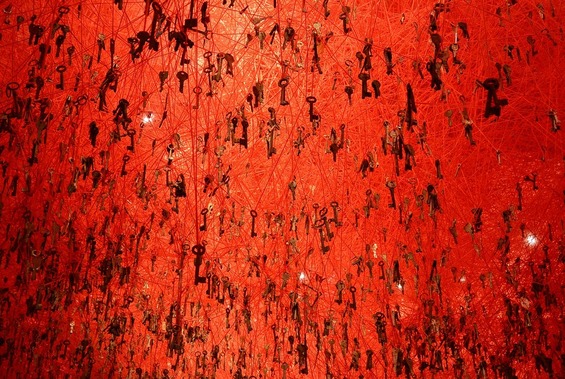 Last week, I felt like quitting being a writer. So here's an advice list to myself and to current and future writers - a list of directives I wish I knew years ago and am still actively learning. 1. Don't wait till you're famous to lift other writers up. Do it now 2. Find a community of writers to deal w/ the waves of what writing and publishing bring, & if you don't have access to a community of writers, make friends w/ individual writers 3. Don't plagiarize anyone EVER 4. Don't let anyone plagiarize you or another writer. If you see it, say something 5. People will still get famous plagiarizing others, don't choose that path—yes it's a choice 6. People will criticize and condemn. Don't drown out *all* the criticisms, but draw lines 7. Listen to critique, filter if it's warranted, and if it is, do better, be better. It will make your voice stronger and your solidarity authentic 8. If it's not warranted, try your best to be compassionate, understand that everyone has wounds; if it comes in torrents, block it 9. Editors are amazing people. If you struggle with what they say at first, walk away, feel all the feels, then come back and look again with a level head & a warrior heart. Stay true to your voice, but know that your best voice needs community 10. Go to a therapist, if possible 11. The publishing system is broken, do what you can to reroute it. Share your platform, refuse events/interviews that will bring you fame/$ but are unjust. Recognize that publishing is not AT ALL immune to racism, classism, & sexism 12. Not all famous writers are rich 13. Famous writers aren't always good writers, some are 14. Comparing yourself with others will come. Figure out ways that work for you to silence those voices, or positively engage them 15. You are more than your writing 16. You are more than your published work 17. Even if you never publish anything again ever, you are enough 18. Find economic hacks if you need to: use Amazon's Look Inside as a library, get books from the library for research, send a message to the author & see if they'll send you a free copy 19. Ask yourself, is it worth writing this if only one person is affected? Yes numbers count in the current system, but they don't have to count in your heart. Get others to remind you of this, regularly 20. There's only as much room at "the table" as we, in our biases, actively make! 21. Marketing sucks, but it's part of the system. Ppl will say you don't have to do it, but you do. Famous ppl will talk about how dumb it is, & it is, but you still have to do it 22. Don't dehumanize other writers, don't assume they haven't gone through shit to be where they are 23. You are important, your voice matters. So keep working hard 24. Rejections will come, it's more important how you deal with them than how many you get 25. Find rhythms to get off social media so it doesn't suck the life out of you 26. Take hold of that which brings you joy. The full responses from church & ministry leaders from my article at Missio Alliance. Thank you to each of these leaders for responding.
I asked three questions: 1.How does Ahmaud Arbery’s unjust death and lack of prosecuting his killers affect black Christians? 2. What do you wish you could tell white evangelicals without feeling judged by them in your reaction to this most recent case? 3. How should the American Church respond? A First Lady from Nashville, Tennessee, said, “Ahmaud Arbery’s unjust death and the lack of prosecuting his killers has made the black community feel enraged, disheartened and disappointed. My timeline has been filled with cries of ‘not again’ and ‘how long O Lord.’ I lament that racial trauma has become all too familiar in our existence here in America.” A worship leader from Kannapolis, North Carolina, said, “For me personally the affect comes with feeling as though we don't matter! That our lives are perceived as so insignificant, that justice isn't even deserved. However, I'm called as a Christian to have to reconcile and forgive, and honestly, it creates an inner tension because of the injustice. I have to be intentional in not allowing the same hatred that lives within Ahmaud's killers, to take residence in my heart. It’s hard and it requires me to be intentional! The American Church should respond with lament! It should also utilize its voice to influence and direct culture surrounding these injustices when they occur. What it cannot do is continue to be silent and let a few voices speak for the majority; IT MUST STAND UNITED FOR JUSTICE and be the Imago Dei! I would say to white evangelicals, my lament, my anger, my frustration, my being tired, is something you will never understand! So don't tell me how to feel in this moment or explain to me that you’re not racist. Allow me to process these emotions and to embody the scriptures that say mourn with those that mourn! Don't minimize the pain that the black Christian community experiences by seeking to provide explanations as to why it happened or what caused it to happen. Finally, if you're choosing to be silent, during these times don't get upset with those who chose to be LOUD.” A lead pastor from Charlotte, North Carolina, said, “Tonight I cried in my wife’s lap as I had to have the talk with my sons again. The talk isn’t about how to treat women or how to be a man but how to avoid being killed. Each word measured and balanced but the serious of the moment was not lost. I kept repeating, not to make you afraid, but aware. My 13-year-old son attempted to process it. My 18-year-old son was hearing it again. His eyes never looked away from mine. My wife listened. She allowed me the liberty to be brutally honest. Years ago, I avoided talking to my youngest about the unarmed black man killed in Charlotte. I refused to rob him of his innocence until one day while driving to the store, a police car pulled up beside us and he said, ‘Dad, I am scared.’ When I asked him why, he said, ‘Police kills black people.’ He was 6 years old when Jonathan Ferrell was killed. I gripped the steering wheel and told him that he did not have to be afraid. I lied. Jonathan Ferrell was killed walking distance from our home in East Charlotte. I thought he was too young to understand it, but his friends told him on the playground. Their parents thought it was necessary to tell their young black sons what I was afraid to tell my own. I wasn’t prepared then, but sadly I’ve gotten better over time. Each year I’ve had the talk with them. Not the gentle reminders that parents tell their children about wearing a helmet on bicycles or wearing their seatbelts when driving. The names are too many. The images are seared in my brain and now like many black fathers, I’ve passed the realities to my sons. Again, I tried to remain balanced by speaking of justice, the evil of men, and point them to Jesus. But it’s not easy when I try to answer the question of why this continues to happen? Now as the talk is repeated and I have become a pseudo-expert once again explaining reactions, racism, and realities; the looks on my sons’ faces hurts me to the core. How can they be judged by melanin? I spoke to them using examples of my white counterparts assuring them that we all have something; this happens to be ours. The words are empty. They know it. The cancer of racism isn’t just a world problem but a church one as well. When our predominantly black church merged with a white church during the Trump era, my sons witnessed me sandwiched between two worlds. They witnessed me skirt the Keith Lamont Scott issue as I attempted to bring two cultures under one umbrella. I won’t do that again. I’m tired of folks weaponizing my blackness. Tired of the church excluding racism to ‘ensure the purity of the gospel remains’. Tired of editing posts to make sure I’m being balanced. Tired of being labeled angry when I’m expressing myself. Tired of waiting for justice. A minister of Christian education at a Baptist church in Kansas City, Missouri, who sits on several boards, said “Such events, that happen frequently, is like being mercilessly and repeatedly bullied; it's like perpetually hitting your head against a brick wall; it's like being trapped in the Twilight Zone. Such events seem to reinforce the idea that there are two Americas: one for whites and for everyone else. For many African Americans, this twenty-first century scenario is the continuation of an insidious narrative: white man feels victimized, fears for his life, and is justified to physically or emotionally assault the Black body with impunity. The continuation of this narrative traumatizes African Americans which seems to sequester our voice; the continuation of this narrative makes us angry, cynical, and hopeless. Some lose the get-up-and-go to continue crying out and standing for justice. This trauma is not inconsequential because epigenetics teaches us that the daily trauma that African American females experience is passed on to their babies in utero. This trauma alters the fetus such that as fully-grown adults they suffer from such maladies as hypertension, diabetes, and coronary heart disease. Epigeneticists have found the same maladies in Holocaust survivors and their descendants. The American church must be dutiful to learn about African American history as African American history is world history. The American church must publicly renounce the ideology that animates this type of behavior: white supremacy. The American church must address this deep-rooted sickness of racism from the pulpit and in the classroom. The American Church must develop discipleship initiatives that address racism in this country and the concomitant behavior. The American church must lament such unjust acts against imago Dei bearers. The American church must then launch into action, to stand for justice, and to reform social institutions like the criminal justice system and education. The American church must love her brothers and sisters, as herself, by standing for justice. White evangelicals love and serve the same God as African American Christians. This same God loves justice and hates injustice. This same God calls us to love our neighbor as ourselves. This same God demands that our epistemology inform our ethics; to know God’s word is to do God’s word. Do my white brothers and sisters love justice and hate injustice? Do my white brothers and sisters truly love their neighbor?” A writer from Brooklyn, New York, said, “Ahmaud’s death is another nail in the backs of black people in America. Black Christians especially, have to figure out how to cope with yet another tragedy as we wrestle with the truth about the goodness of our God. It is now a question of why evil happens but why does it keep happening to US? I wouldn’t dare presume the feelings for all black people, but I think it is safe to say that we are tired. The American Church needs to take to the streets. She should be on the frontlines and leveraging every bit of her power socially and politically to make something happen. When it comes to abortion and same-sex marriage you will find Christians in the ears of politicians, why can’t they put that same energy to seeing other people made in the image of God be protected too? The worst part of this has been all of the texts and calls I’ve received from white Christians who are praying for me and feel for me. Do their hearts not break over this? Do they not feel the pain of injustice in their bones? Why is it just me? We have had enough of thoughts and prayers, it is time to put your money, time, and power where your mouth is. I have nothing left to say to white Evangelicals. We are here again because of their silence and refusal to value what Jesus values.” A children’s church director from Georgia, said, “Remember how we as Americans felt on September 12, 2001? There was this collective grief and horror at having watched innocent human life taken right before our eyes. There was anger and a desire to make someone pay as we looked at our children and tried to make them feel safe, grasping for words to explain to them how something so evil could have happened. That sick feeling of powerlessness and rage is something that the Black community re-lives every time we have to mourn another son or daughter like Ahmaud Arbery. We feel those parents' pain deeply and personally - over and over and over and over again. Since Trayvon Martin, my body has developed some uncontrollable physical responses to stories like this. It is emotionally exhausting and traumatic. Unequivocally and quickly. There is no reason to condone vigilante justice by ANYONE. Don't entertain the tired rhetoric that will be trotted out about how the young man deserved or brought this on himself. Shut down any efforts to assault Ahmaud's character as completely irrelevant, because it is. React to Ahmaud's death the way you would if your blond-haired blue-eyed track star nephew had been gunned down by these non-existent immigrant thugs some of y'all were so afraid of. I know that our family of faith bond is deeper than race, ethnicity or culture, but on some days when I have to watch White Christians do this nonsense, I don't want to see or talk to ANY of you. Being angry and lashing out is something I may need to do privately, but I'm learning that it rarely gets me anywhere publicly. Sometimes I need a minute, so you may have to either give me some space or get an earful. BUT - you can definitely be talking to people other than me! I need to know that while I'm wrestling to keep it together, you are brave enough to speak out in the public square and call out the injustice and take on the failures in dominant culture. I'm watching to see if you are pretending like nothing happened. You don't have to take on every case, but surely to goodness ONE of these stories ought to move you to righteous indignation. An author and ministry co-founder from Ohio said, “I would tell white evangelicals that they hold part responsibility because they continue to support a man in the Oval Office who is blatantly dividing America. White men, especially, are freely carrying AK47s walking the streets and shouting that they have permission from their president. I’ve heard these words with my own ears. If we had evangelicals following Jesus and not their heart for a Supreme Court nominee solely focusing on pro-life when it comes to abortion, we may not see some of the ugly that is taking place, which is threatening black and brown people.” An elder and Bible teacher in Western Maryland said, “It affects black Christians because it makes us struggle with Christ’s command to love our enemies. The American Church should respond by acknowledging, addressing, and preventing the racism that’s prevalent in our country. Everyone needs to check their hearts. Do their beliefs align with God’s word? Why do certain segments of the Christian church think it’s ok to kill people? I wish I could tell white evangelicals that sending out a hunting party isn’t ok. Those types of actions are NOT from the heart of Christ. Stop defending that behavior. I’d also like to invite them to get to know black people. I’m sure they’d love us." 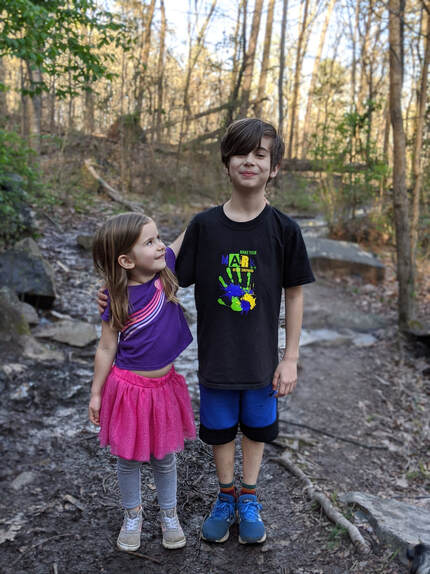 Juniper and Cade are teaching me quite a bit in the Coronavirus era, and I'm working on following their lead. 1. Express Your Emotions It doesn't take much to know how Juniper is feeling. She shows her emotions with no fear. If she's sad, she will let everyone else know (whether they want to or not) and if she's happy, the whole house feels lighter. There are times during all of this staying-at-home when I actually feel the opposite of what I'm showing, and while I understand that not everyone needs this advice, it's something I need to be better about following. Not so that I can justify making a scene, but more for me to articulate how I'm feeling and express my need for a walk alone or a time to cry. I also want to model that this time is not easy for any of us as we all go through periods of adjustment as well as the stages of grief. 2. Rediscover What You Already Have Cade is rediscovering his collection of legos. It's been so fun to watch him fall into a make believe world of lego warriors fighting each other. Airplanes flying from one side of the ocean (or couch) to the other to go defeat the bad guys or certain lego characters getting hypnotized by the bad guys and acting weird. Juniper has also been intrigued by the worlds that can be imagined through legos and she creates her own adventures while the two of them let legos take over the living room. 3. Forgive Quickly Both Cade and Juniper are quick to forgive. Juniper rarely needs a good reason to forgive, she just does it. Cade, after we talk stuff out with him, seems to always go beyond forgiveness into empathy, at least with us, his parents. I wish I could be as quick to forgive as they are.
Maybe this is the last thing you need: another person’s opinion about the global pandemic of COVID19. If that’s the case, please stop reading. One of the most important spiritual muscles we must exercise during this time is discernment. Discerning what we are capable of accomplishing, what will add to our mental/spiritual/physical health and what won’t. And discerning how to be people of justice during this time.
So be still. Or keep moving. Find ways to escape from reality and then find ways to face reality. All the while, discern the balance you and your family needs, not just for survival (but yes for survival right now) but also for flourishing. It didn’t take long for The Corona, as I like to call it, to hit our family’s finances. My husband, Andrew, has been working at a wonderful bakery in town that has had to shut its restaurant business section (the part Andrew worked in) and is now baking bread for delivery. The owners have had some serious decisions to make, ones that have deep, economic impact to their employees and to the owners themselves. I know they have felt it, and their deep compassion for the community has been on full display to those of us who know what has gone down behind the scenes. They’ve always been people of deep compassion, and it has been hard seeing such good people deal with such hard consequences. Our finances are tighter than normal, and it seems it hasn’t taken long for The Corona to affect the majority of Americans in its financial impact. It’s certainly hitting all of us spiritually, physically, and mentally as well. As is often the case with me, I want to know: How do we continue to be people of justice these days? Remember that Faith & Reason are Not Rivals I believe that reason is a key ingredient in authentic faith. And authentic reason includes an element (or several elements) of faith that keeps it in the realm it was meant to exist in. I thought of myself as a woman of faith until I met my husband, Andrew. It didn’t take long to realize he is a man of faith, and I am a woman of reason. While we were missionaries, he would look at an empty bank account and say, “Don’t worry. God will provide.” I would look at that same account and say in sincere earnest, “How can we help God provide?” Neither of those two concepts can stay stagnant. I must always be moving closer to the faith side of reason while people like Andrew must always be working toward the reason side of faith — and we both must use that equilibrium to fuel a better understanding of justice. Ultimately, we must recognize why faith, reason, and justice were created: redemption. If reason is not used for redemptive purposes it can stay stagnant, or worse — it can become self-seeking power. If faith is not used for redemption it can lead us to irrationalism, obscurity, and possibly even heinous acts we say are the will of God. If we have a perfect balance of faith and reason, but don’t use that balance for God’s redemptive justice, we become internally developed but externally disconnected and irrelevant, like a hermit genius. Reason has us make plans, but faith reminds us to hold those plans loosely because only God can ordain our steps. Reason tells us to follow our cultural norms, while faith reminds us there is another kingdom whose nationality should be stronger in our hearts than our regional nationality. Faith tell us to trust God, and let him guide our steps while reason reminds us it’s wise to use a map when we don’t know where we are going. It’s a balancing act. Sometimes we feel like we are flailing about on a tightrope. Faith says we can walk across. Reason tells us to be prepared before we do. Justice reminds us that we are walking across for a purpose, not merely for bragging rights. God is not calling us to be lonely, wise hermits. Nor is he asking us to be unaware, religious fanatics. He calls us to: loose the bonds of wickedness let the oppressed go free break every yoke (Isaiah 58) How can one person find the balance between the two? Martin Luther King Jr. gives us insight into this conflict, calling faith, religion and reason, science. “Their respective worlds are different and their methods are dissimilar. Science investigates; religion interprets. Science gives man knowledge that is power; religion gives man wisdom that is control. Science deals mainly with facts; religion deals with values. The two are not rivals. They are complementary. Science keeps religion from sinking into the valley of crippling irrationalism and paralyzing obscurantism. Religion prevents science from falling into the marsh of obsolete materialism and moral nihilism.”[i] (For more on this topic, check out my book A Smoldering Wick). So during The Corona, a balance between faith and reason looks like reading the news (as you can handle it, turning off notifications!) and taking in the information while balancing it with spiritual rhythms (like these that Justin Whitmel Early suggests) or finding your own. To be very honest, prior to The Corona, I went on a prayer walk nearly every weekday listening to the Pray as You Go app. I’m still working to return to this rhythm or something like it. Because working from home with everyone home is a whole new world, and not the Aladdin-song kind. So balance out the news through prayer. Christianity Today has a great list of 20 Prayers to Pray, I would add a few more to that list of 20: 21. For Immigrants that they would not be discriminated against by others, that they would find the resources they need, and feel supported by Americans. 22. For Emigrants and Asylum seekers at the border, that God would protect their bodies from disease and abuse and their minds from despair. And for the many who are working on their behalf, for energy, resources, and compassionate authorities. 23. For Asian Americans who have been othered by this virus, that God would protect them and their families from the hate that others spew. And for those showing this hate, that God would turn their hearts away from their evil ways. 24. For marriages, that God would strengthen the bonds between spouses and protect against the fiery darts of the enemy. 25. Against hate in all its forms, that love would overcome. During The Corona, don’t give into the lie that says your faith must be pitted against your reason. I’ve seen this a lot with churches who won’t close their doors, and even recently with Liberty University saying it will reopen. We can be people of reason and faith, and move toward justice with both our reason and our faith. May it be so. Remember that God is a God of Abundance Not a God of Scarcity If you’ve been following my blog lately, you know this has been an intense theme that comes up over and over again. I want to take a moment to remind you that God invites us into what looks like scarcity sometimes but is actually abundance, meanwhile we chase after gods and idols of scarcity that look as though they will provide above and beyond our needs. Please do not give into a mentality of scarcity, and remind me not to either. We are the followers of the God of communal abundance, the followers of the God of Jubilee — and we therefore should not be fearfully deciding anything—especially that there’s not enough to go around. This is not biblical. This is imperial. Empire requires a mentality of scarcity for success. The status quo in America requires this same mentality of scarcity. This mentality says: “There’s a finite amount of land, of power, of privilege, promotions, slots at the best schools, and resources. We must keep people out.” The scarcity mentality demands us to dehumanize our neighbors and ourselves. It says that both me and my neighbor are not full human beings, but producers who are defined by their economic worth placed upon them by society’s standards. We must believe in the good news that gleaning is as good for the one who gleans as for the one who owns the field. Gleaning was a practice for the Israelites in the Old Testament to remind them that the earth was the Lord’s and the fullness within, that God was the one who owned the cattle on a thousand hills, and that God is a god of abundance, not of scarcity (Psalm 24, Psalm 50, John 10). So if you have been hit hard already by The Corona, do not feel ashamed to ask for help. We’ve already had to do so as a family. And if you haven’t been hit hard yet, be generous toward others, whether in giving to important causes, regionally, nationally, and internationally (IMMIGRATION: like The Immigration Coalition’s handwashing stations, KIND, RAICES. FOSTERCARE: Bethany Christian Services, Lutheran Family Services (search by your area), and United States Conference of Catholic Bishops.) It’s OK that You are A Finite Being Finally, we are all human. Period. And while we may not all be vulnerable to the disease, we are all vulnerable to something right now. Care for yourself and care for your community and just like faith & reason, realize the two go hand in hand. Go on walks, but don’t go hang out with people. Follow proper protocol, it might not be for yourself that you are doing this. Maybe you are relatively healthy, and you don’t actually fear getting the virus. Even so, know that there are people around you and in your family that have a high risk of getting it, and tweens, teens, and adults of all ages have died from it. So stay home for the sake of others, if not for your own sake. Keep your wits about you: read books like mine — but actually determine what type of content won’t overwhelm you right now (I’m reading the 3rd book in Eragon series & The Very Good Gospel by Lisa Sharon Harper) turn off notifications from all the socials, set parameters around when and why you will look online. For me, I had to silence certain group texts in order to maintain some type of mental focus because there’s so much communication now happening over my phone. There are times I have to put my phone in another room. We’ve written up a schedule to follow in our house as the kids school at home, but I’d be lying if I said we follow it well. Give yourself grace and your family grace. Sleep in. Don’t sleep in. Eat well; eat snacks. Do what you need to do right now to find balance. Do yoga when you can, find a YouTube video that you can exercise to, listen to calming music or have a dance party in your kitchen, and then tell me about it. For me the two most overwhelming aspects of The Corona is: 1. Knowing that the whole world is suffering from this pandemic in some way, and 2. Not having a clear end to our societal “adapting” I don’t have any pretty answers for this. All I can say is, let’s hold each other up. When it overwhelms you, maybe it’s not overwhelming a friend and vice versa. We’re going to have to lean on each other as much as possible. When the prospect of doing school and work from home for the foreseeable future overwhelms me as a working mom, I’m going to ask for prayer. I’m not going to be afraid of my humanity and my finiteness. Pretenses won’t get us anywhere. As I often say, and frequently need reminding: God is not afraid of our humanity. Let’s mimic him in that, and let’s be as Christlike as we can be during all of this: upholding the dignity and humanity of every human & seeking justice and love for the flourishing of those in our families, our neighborhoods, in our states, and around the world. ___________________________________________________ [i] King Jr., Martin. (1960). Strength to Love. I read 45 books in 2019. It’s not something I’ve done probably since grad school, although there I totally skimmed! I’m grateful for the opportunity. Most of these books were read by my ears (listened to on audiobook, yes that still counts!) And a few were read by my eyes. It really is because of my long commute that I have the time to read this much, and two years ago my New Years Resolution was to read two books a month. So please don’t feel intimidated by this number, but know that it’s taken me a long time to get here, and I’m proud, grateful, and hopeful next year I can read as many.
Here’s a few life changing books I read this past year. Happy 2020 to you all! Glorious Weakness, Alia Joy Prophetic & poetic, this book is a love song to a very gooooood God no matter our circumstances. If you haven't read it, whether you are male or female, empty-handed or not, sick or well, struggling or thriving, deconstructing or reconstructing, this book will bring you back to the God you always knew existed (but more often you've learned about a Yaweh cloaked in someone else's clothes because of life, church power, and the greed of the American dream.) "Maybe all of life is just a journey back to the heart of God, back to the garden where we saw His face and He called us good. Back to the place where we remember who we are by knowing who He is." I’m Still Here: Black Dignity in a World Made for Whiteness, Austin Channing Brown “The white Church considers power its birthright rather than its curse.” We so often talk about how we need to include the voices on the margins but silence those same voices even when they are already sitting at the table, when they are asking questions with answers that might reveal our greed for power, when they seem angry and we don’t want to ask why they are protesting against the status quo. When they kneel when we think they should stand, and stand when we think they should kneel. We silence Dee and Austin and so many others who have a prophetic perspective of Christ that we white Evangelicals desperately need. And it is to our collective detriment. We want their faces in our marketing pictures, maybe even their names on our payroll, but we don’t want their ideas, their initiatives, their pushback, their balance, their accountability, their prophecy. Because power is our birthright not our curse. You can read my blogpost on I’m Still Here. Reconstructing the Gospel: Finding Freedom from Slaveholder Religion, Jonathan Wilson-Hartgrove Powerful, heart-wrenching, and eye-opening. I've been wanting to read this one for a long time. I so appreciate Jonathan's mix of boldness and humility in his own journey to seeing the difference between slaveholder religion and the Gospel of Jesus Christ. I'm looking forward to reading his newest book, Revolution of Values. "I'm a man torn in two & the gospel I inherited is divided." "Nothing you can do is going to change the world; but that's no reason not to do it. "When you are blind, you learn to rely on your ears." The Color of Compromise: The Truth about the American Church’s Complicity in Racism, Jemar Tisby For those of us in the Church in America—especially leaders in the church—this book tells our collective church history. May we seek to remember our history fully in order to better see where we are and the path we need to take toward true freedom. "If racism can be made, it can be unmade." "Many Christians today say they would have been active participants in the civil rights movement fifty years ago. Now, in the midst of a new civil rights movement, is their chance to prove it." "There would be no black church without the racism of the white church." The Line Becomes a River: Dispatches from the Border, Francisco Cantú So much to say about this beautifully written book. I read portions of it while researching for Separated by the Border, but put it down intending to pick it back up. So appreciate the tension Cantú writes about having been a Border Patrol Agent & then leaving it because "the work's not for me". It's a book full of opposing juxtopositions: violence against humans/violence against nature; border patrol/migrants; defenders/prosecutors; humanizing/dehumanizing; border patrol/park ranger; mother/son. "It didn't matter that her Spanish was poor, that she came as a tourist from another country. It didn't matter because we were mothers." When They Call You a Terrorist, Patrisse Khan-Cullors & Asha Bandele I really wanted to learn more about the Black Lives Matter movement, and this book was incredibly eye-opening, not only to what Patrisse had seen happen in front of her eyes growing up, but to the complexity of starting and maintaining a movement against White Supremacy. There was much to learn from this book. Lucky Boy, Shanthi Sekaran I read about 75 percent of this when I was researching for Separated by the Border because my friend Carolina recommended it. But the deeper I got into this amazingly researched piece of fiction about immigration and foster care the harder it was to keep reading. The story was too real. The pain was too much, the ache was overwhelming. Reading it and reading too many articles about The Zero Tolerance Policy (of April 2018) often had me on my knees—not praying in the typical sense, but wailing—which is its own type of prayer, the groaning kind when words just don't come. I had to put it down for my own mental health. And as much as I didn't want to, I knew I needed to. Now, nearly a year after I began writing my own book, I had time and space and mental health enough to pick it back up, to finish it. The story is still so very real, the pain so honest, the characters so very very human. In the end, I find myself asking the questions I think are important for all of us to ask: how far would we go for the sake of love? How far would we go for our own children? How far would we let others go for their children? How selfish is too selfish? How many double standards do we allow because of privilege? These are the questions that will stay with me. This is a book that will stay with me, tucked around my hips like the little toes that find their perfect spot when I carry my 3-year-old daughter. I don't tell those toes to go there, they just do. This book hits so many perfect spots I’m not sure I previously knew existed. A Sin By Any Other Name, Robert W. Lee What a message, what a legacy Rob is leaving. It's amazing how much he is faced with these divisions often just by showing his credit card or responding to his name being called by a medical professional. As one who calls North Carolina home, this book rang especially true knowing the context Rob speaks from so well. I hope all Southerners will read this timely & powerful prose. Bernice King 's foreword is beautifully powerful. The connection between the two is a dose of potent hope. “I wanted to be a preacher riding in on a white stallion with a sword drawn ready for homiletic action, but instead I’ve been riding in on a donkey wondering how the bills will be paid and how I can articulate a message of hope for people who so desperately need it. If I reflect on this carefully, I see that the white stallion might be more like General Robert E. Lee’s way of doing things, not the way Jesus did things, and not the way I intend to do things.” Becoming, Michelle Obama Listening to Michelle read her own book was a joyful part of my morning experience for the few days I listened to her audiobook. There was so much in this book. So many layers of life. Her inside view of politics, her boldness to raise her children in an awareness of her own poverty growing up, and her perception of America is so very interesting. She unashamedly shares the humanity not only of herself but also of her husband, and in an era where it feels like people either place others on pedestals as demigods or treat/call other human beings as if they aren’t human, this intentional humanizing of others makes me rejoice. “Everyone on earth,” [our parents would] tell us, “was carrying around an unseen history and that alone deserves some tolerance.” Falling Free: Rescued from the Life I Always Wanted, Shannan Martin This book unexpectedly floored me. I’ll be honest, I had overlooked this book a few times. But after a brief interaction on social media with Shannan, I decided to pick it up. WOW. It shook me out of a stupor I didn’t even realize I was in. I am so grateful for Shannan’s life, her honesty, and willingness to name the counterfeit versions of the Gospel that she believed. Shannan is a magnificent writer. There are few books I have EVER read where the writer is not only on point in content but also in word choice, this is one of those books. I am forever a fan of Shannan’s writing, and even deeper, I want to be like Shannan, because I believe Shannan is like Christ. Pick this book up. I think I highlighted half the book, no joke. I am looking forward to reading Shannan’s new book, The Ministry of Ordinary Places. "Living small is not about having less, but being less-- less respected in the eyes of the world, less successful, less wealthy, less esteemed, less you. Less me. And more Jesus. Here, in this abundance of less, where more of us is stripped away, we'll uncover the person we were made to be, the one created in the image of a God who sank holy feet in to our human mess." The New Jim Crow: Mass Incarceration in the Age of Colorblindness, Michelle Alexander What a powerful, well-researched book about the actual state of incarceration in our nation. This book lays out the lamentable reality of how slavery really has just changed forms. White Supremacy is still god in America. “It's not that white people are more unjust than others. Rather it seems that an aspect of human nature is the tendency to cling tightly to ones advantages and privileges and to rationalize the suffering and exclusion of others." "No task is more urgent for racial justice advocates today than ensuring that America's current racial caste system is its last." Just Mercy: A Story of Justice and Redemption, Bryan Stevenson In an attempt to better understand the state of incarceration in our nation, and really the history of it as well, I read this book along with Michelle Alexander’s. Bryan Stevenson is an amazing man, and I have followed his work since I attended grad school at Eastern University, where Bryan also attended. But I didn’t read this book until this year, and the phrase “audacious hope” is one that embodies who Stevenson is. What a witness he is in this world, what a fighter against injustice. I look forward to seeing the movie that comes out this week. "There is a strength, a power even, in understanding brokenness, because embracing our brokenness creates a need and desire for mercy, and perhaps a corresponding need to show mercy. When you experience mercy, you learn things that are hard to learn otherwise. You see things you can't otherwise see; you hear things you can't otherwise hear. You begin to recognize the humanity that resides in each of us." The Souls of Black Folk, W.E.B. Du Bois This should have been required reading in high school and/or college. "We are training not isolated men but a living group of men, - nay, a group within a group. And the final product of our training must be neither a psychologist nor a brickmason, but a man. And to make men, we must have ideals, broad, pure, and inspiring ends of living, - not sordid money-getting, not apples of gold. The worker must work for the lory of his handiwork, not simply for pay; the thinker must think for truth, not for fame. And all this is gained only by human strife and longing; by ceaseless training and education; by founding Right on righteousness and Truth on the unhampered search for Truth...and weaving thus a system, not a distortion, and bringing a birth, not an abortion." Roadmap to Reconciliation: Moving Communities Into Unity, Wholeness and Justice, Brenda Salter McNeil Books on racial reconciliation are often very theologically packed, but practically lacking. Brenda gives robust theology and practicality with her book Roadmap to Reconciliation. I found this such a great resource and recommended it to some good friends in ministry, even my own church as we work toward more racial justice in our neighborhood. “Transformation requires disruption and a degree of chaos to increase the sense of urgency that change must happen. However, there must also be enough psychological safety that the chaos does not completely overwhelm our ability to reflect and reorganize ourselves. … I have seen strategies that were stressful enough to create change but ultimately were not safe enough to allow people to form new patterns. On the other hand, I’ve also seen educational strategies that allowed safe spaces for open dialogue but did not create enough discomfort to push a group’s members beyond their old patterns of relating. There must be both!” Assimilate or Go Home: Notes from a Failed Missionary on Rediscovering Faith, D. L. Mayfield At a time where "evangelical" has become synonymous with "seeking power", this book is a reminder that the Bible speaks against us power-seeking white evangelicals more than it speaks for us. We need such prophetic voices in the world, and I am grateful for DL's boldness and vulnerability in this wonderfully-crafted book. "It becomes difficult to claim the blessings of God amid an economic system that benefits you but not your neighbor. And a country that claims to love the poor and huddled masses, but fiercely hoards her wealth and opportunities, starts to look increasingly sinful in the light of a longed-for kingdom where a loving God is in charge." The Cross and the Lynching Tree, James H. Cone The most life-changing book I read this year was The Cross and the Lynching Tree. It’s a book I meant to read two years ago, but because of my own life events was unable to do so. This was not a book I was able to just read right through. I had to put it down several times and take a break. It truly is life-altering to see the events of the history of my own nation as a reflection of the Cross in such a deeply oppressive way. The Cross was ugly and cruel, and it’s pretty easy to admit that. But in the same way, lynching was ugly and cruel, and it’s amazing we need a book to make the connection, but James Cone does it so well. “The lynchers were the ‘good citizens’ who often did not even bother to hide their identities. They claimed to be acting as citizens and Christians as they crucified blacks in the same manner as the Romans lynched Jesus. It is even more ironic that black people embrace the Christian cross that whites used to murder them.” “It’s one thing to think about the cross as a theological concept or as a magical talisman of salvation and quite another to connect Calvary with the lynching tree in the American experience. To speak of the Black Christ in a land lighted by the burning crosses of the Ku Klux Klan challenged the imagination of black artists.” Truly, it is a completely different thing to connect Calvary with the lynching tree in America. That connection is one that continues to form my heart and mind. 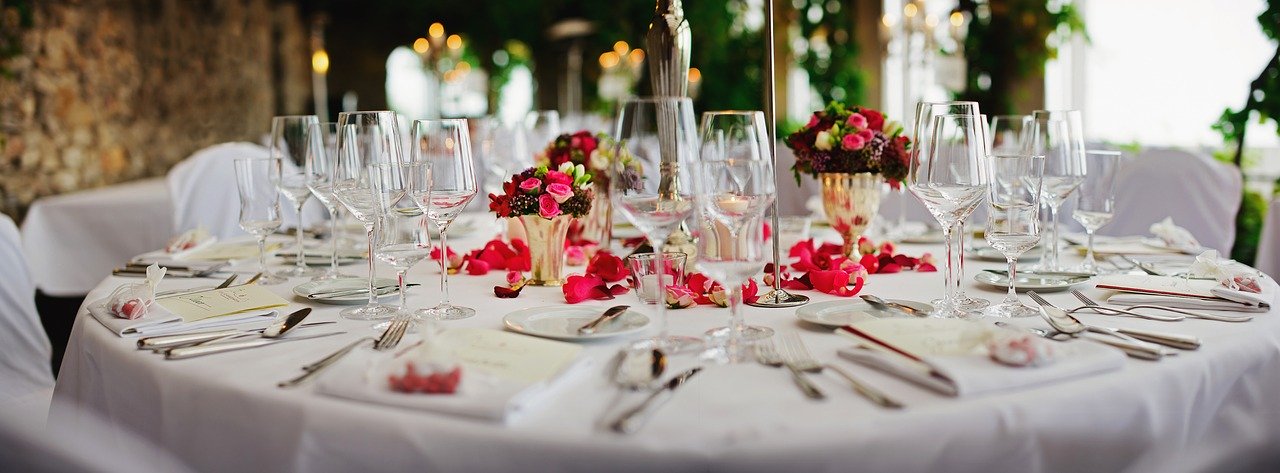 A beautiful invitation arrived in the mail. Caligraphied and glossy. Join me for a feast, it said. So I showed up to the place at the time. There was God. Sitting at an empty table. “I thought this was a feast. Where’s the food? The people? The music” I said, standing. “Coming. I wanted to talk first.” “Talk about what?” I said, still standing. “About whether or not you will sit down.” “Sit down to what? There is no feast here. I see nothing. No food, no dishes, no silverware. Nothing. I’m tired God. I’m tired of your games.” “And which games would those be?” “This paradox crap. If you invite people to a feast, lay out a feast for them. Come on. You know how to do this. You turned water into wine for Mary’s sake. Where’s the damn feast? You promised one. You invited me to one.” “Sit down. Tell me what you see.” “No, I won’t. I don’t see anything. This is all stupid!” I yell and then throw down a chair. “This is crap. It’s all crap. You don’t do what you say. You don’t protect when you said you would. You don’t stay with us when you say you will. Where were you? Where were you when she went through that? Where were you when I felt alone? Where were you when there was no food on the table and no money in my pocket? This is stupid. I’m done with these games.” “I don’t play games.” “Bull. Yes you do. It’s all games. You say something in your Word, like I’ll prepare a table for you. And then you do this crap. You sit at an empty table.” “Gena, sit down,” he says calmly, my anger not affecting him at all. “No. I don’t want to. You promised a feast. This isn’t what you promised. The invitation was a lie.” “Gena, sit down. Pick up the chair you threw and sit down.” “Fine! Ugh,” I say, sitting down with the attitude I thought I left behind in my teen years. “Tell me what you see.” “I see nothing,” I say. Perturbed. Silence. “I see a table, I see a lying God. I see an angry me.” “Ok. Good.” “Good? Ugh. Our definitions of good are very different, God.” “Gena, take a deep breath.” Reluctantly I breathe. “Close your eyes,” he says. “Why? That’s stupid,” I shout back. “Fine whatever,” I say, feeling like giving in might end this annoying conversation. “What do you see?” “Darkness.” “Good.” “I hate your definition of good.” Lovingly and slowly he says my name, “Gena,” then pauses. “What do you see? Use your other senses to see.” I try to focus. I try to get over my annoyance. I flare my nostrils to engage my sense of smell. The sweet aroma of citrus and grapes fill my breathing. But then the sweetness is replaced with smokiness. With my eyes still closed I say, “I think I sense oranges. So I see bright oranges in my mind. I see a bowl of plump purple grapes. I see a long-stemmed glass of Lambrusco with the bottle standing next to the glass. And, overpowering all of it is the smell of a spicily smoked turkey.” Somehow I sense God is smiling, even though my eyes are still closed. “What do you hear?” he asks. “Emptiness,” I say, but then I correct myself, “No, calmness.” As soon as that word came out of my mouth, I begin to hear a violin. Slow and low. “I hear some instruments,” I say. “A violin, and some other ones but my ear cannot differentiate them.” “Good. What do you taste?” he asks. He must have gotten out of his chair and walked over to where I am while I was focusing on the instruments. Is that a piano? Or a keyboard playing different types of sounds?. His hand guides my own as he wraps my fingers around a fork and slices it into a dense piece of cheesecake. I hear the sound the fork makes in the cake. My eyes are still closed, but my lips ask before I can understand how am seeing what I see. “This is gluten-free, right?” and then we laugh simultaneously. “There are no sensitivities or allergies here,” he says. I bite down into a succulent piece of New York style cheesecake garnished with a fresh raspberry—not a slimy canned strawberry. “I taste lime,” I say, “I mean, I taste cheesecake and raspberry, which I expected to taste because I see those in my mind. But I also taste lime which I don’t see in my mind.” He smiles even bigger. “Yes,” he says, “there is lime juice squeezed on top.” I sense he moves away from me, back to his chair across the table from me, and I feel a slight bit of melancholy creep into my whole self from my toes to my ears, my body feels sad. “Take another bite, Gena.” He says with directness in his voice. I do, and I am glad. “Now, slowly I want you to open your eyes,” he says. “Will it all go away if I do?” I ask earnestly. “Open your eyes,” he repeats. Slowly, carefully, I lift my eyelids like a heavy velvet curtain being pulled up. “I don’t see anything,” I say. “You don’t. But you do,” he says. “You see and you don’t see simultaneously.” I try to feel around with my hands. Can I still touch it and see with my appendages even if I can’t with my eyes, I wonder. “I don’t feel anything,” I say. “You don’t. But you do,” he says again. “Gena, you asked where the food and the people are—where the feast is—when you first arrived. Do you remember what I told you?” “Yes, you said they were coming.” “Exactly. Good.”When he said “good” this time, my heart felt joy, not anger like before. “What is coming is already here,” he said. “You can’t see it, but you can. Will you choose to sit down at what looks like an empty table to your world-veiled eyes? Will you choose to believe when you don’t want to believe? Will you sit when I invite you?” “I mean, I did earlier. I had a pretty bad attitude about it, though.” “Yes. Will you do it again, though? Will you sit down at the table I prepare for you? Even when it looks like it’s not prepared at all? Even when your friends, especially your Christian friends, tell you that it’s stupid for you to sit down. Even when your own family and … .” His voice got deep and serious before he continued, “and your own self thinks it’s the worst decision you could make.” “I don’t know.” I could sense him smirk a bit like Mona Lisa, but I didn’t see it with my eyes. “Good.” He paused. “Before you go, I want you to remember the turkey and the grapes and the cheesecake and the violins. I want you to remember that I have. I have. I AM and I HAVE and I DO. I am the God … “ his voiced trailed off and suddenly I saw him no more. “Of abundance,” I thought or maybe I heard. I was back on a park bench overlooking a soccer field. My phone rang, and I shuddered. He’s a God of abundance cloaked in a mask of scarcity. Meanwhile so many gods of scarcity cloak themselves in abundance. “I believe, God, help my unbelief,” I whispered to the blue sky before I answered my phone. |
Gena's
|

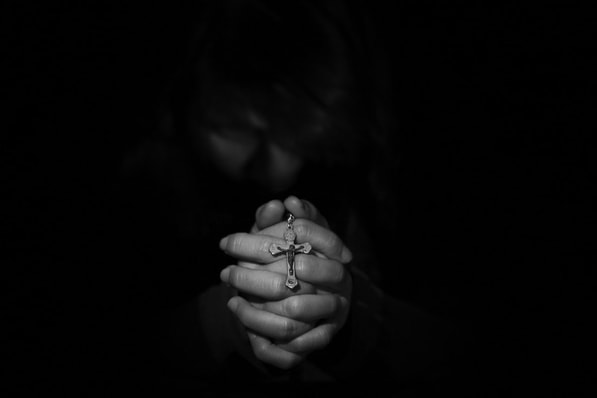

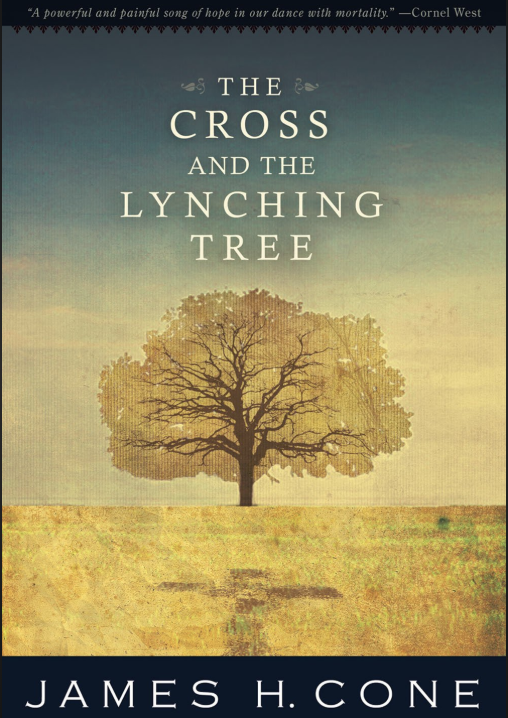
 RSS Feed
RSS Feed

